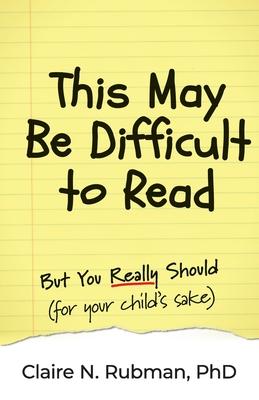There's no baby Einsteins in cribs anymore, our babies can't read, and no one is still hooked on phonics - so what's left? This may be difficult to read, but we haven't been selling reading skills very well... Our society has put a premium on one single aspect of the reading process - letters & sounds (or phonics). This has given the impression that 5, 4 or even 3-year-olds can become proficient readers but there is a myriad of psychological and neurological evidence that emphatically refutes this idea.
It may be difficult to read that despite all your hard work, you have only scraped the surface of the learning and reading process with your child or, worse yet, that you may inadvertently have set your child up to fail... Although it may appear that even very young children can "read" words out loud (or decode), those same children often experience great difficulty extracting meaning from the printed word as they move through middle school, high school or college. Their reading skills may superficially sustain them initially, but the sad reality remains that 1 in 5 college students has to take a remedial reading class in their freshman year.
This May Be Difficult to Read creates the opportunity for you to go back in time to think as a child thinks and read as a child reads. Engage in the fun, interactive examples, read the anecdotal evidence and participate in the research studies to experience reading as your child does. Armed with this new perspective, together, let's take reading into the 21st century and reinvent the reading process...
Learn about brain development and the 5 comprehension skills that 5, 4 and even 3-year-olds should be focusing on instead of fixating on letters, sounds and rote memorization.
Engage in 15 research studies within the book so that you can experience what your child may encounter as an early reader. This will shed some light on the many reading failures that occur throughout our educational system and help your child to avoid them.
Follow the fun, 4-stage reading program to open up a world of sustainable literacy for your child that will focus on extracting meaning from the printed word.
Let's use our understanding of the human brain to maximize our children's learning potential while simultaneously optimizing our precious time with our children as we create a "need to read" in their daily life. Transform your home into a developmentally appropriate ecosystem and make reading part of your daily routine with fun, easy and engaging child-centered interactions.
In our harried lives, somewhere between work, dinnertime, bath-time, laundry and house cleaning, we parents deserve to have more fun with our children!
As parents, we have high hopes for our children. And rightly so, but children don't beep like a microwave when they are ready to learn! They also don't signal the amount that they have learned like your car's gas gauge measures your gas level! So why not apply some sound psychological research to bolster their success and put your mind at ease.
Since reading is the linchpin of all future learning, it's time to disrupt an educational paradigm that hasn't shifted in 50 years. It's time to reinvent reading!
Remember, their brains are different from our brains. They don't think, speak, or learn like we do. Let's learn from their perspective so we can appreciate why "this may be difficult to read" ...
